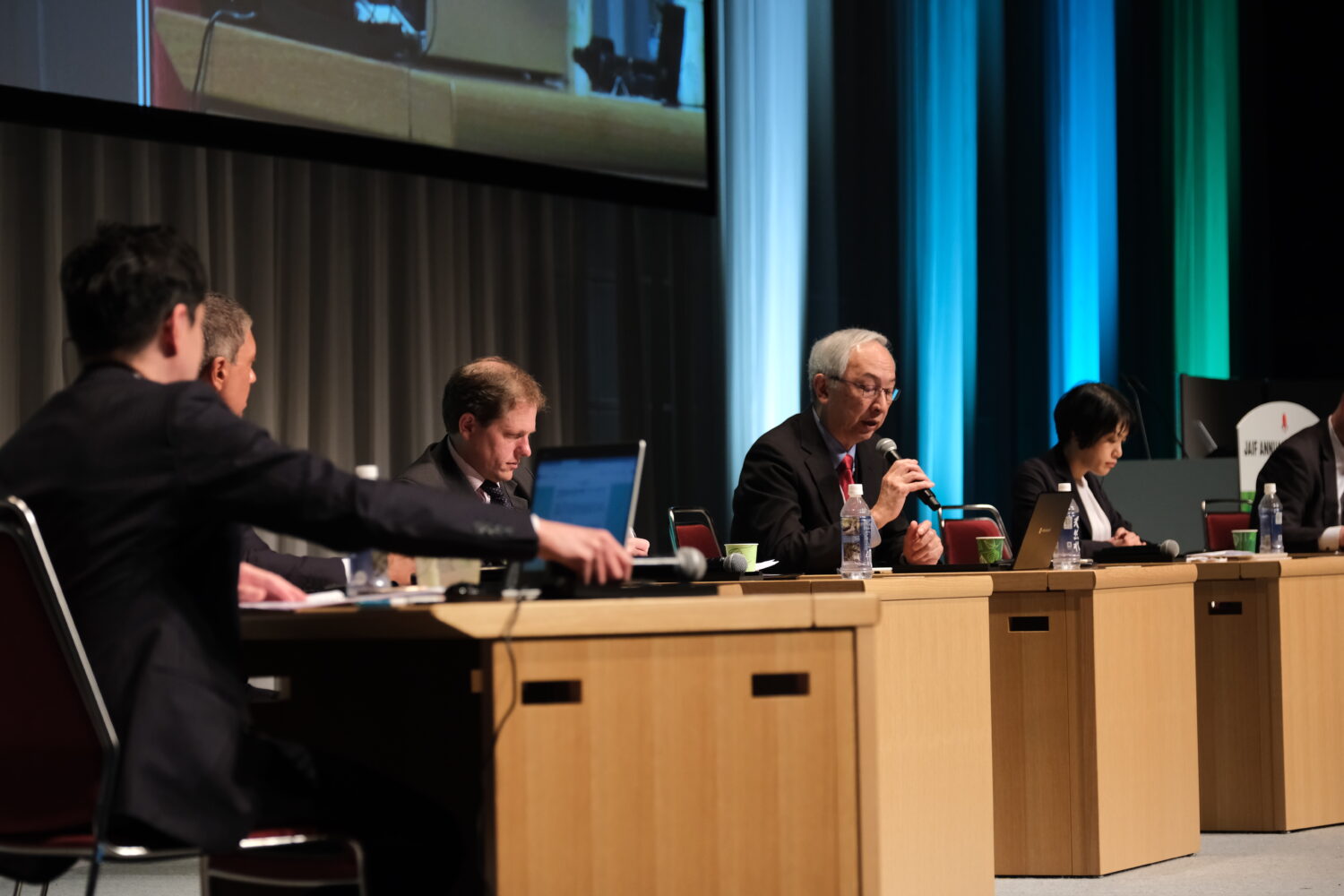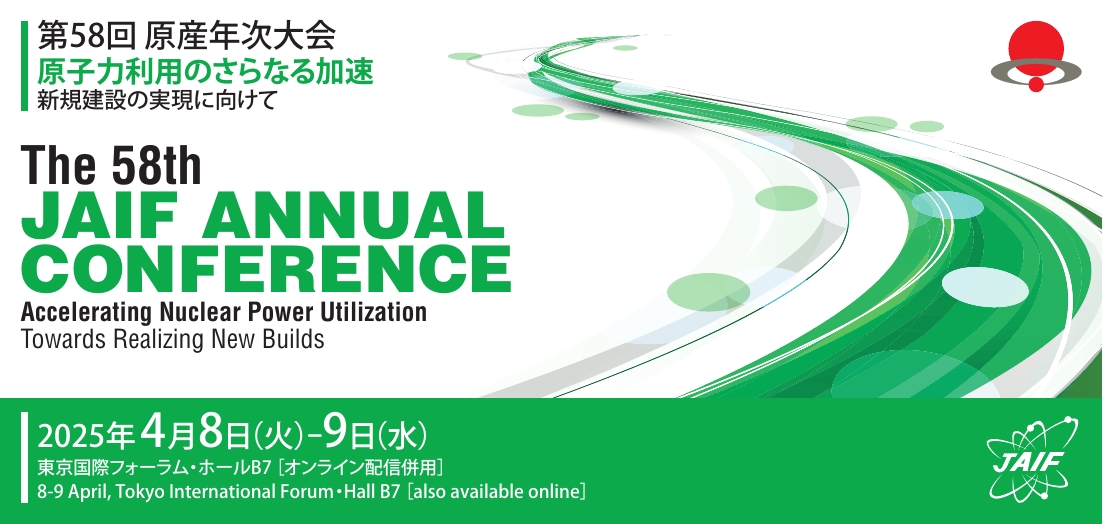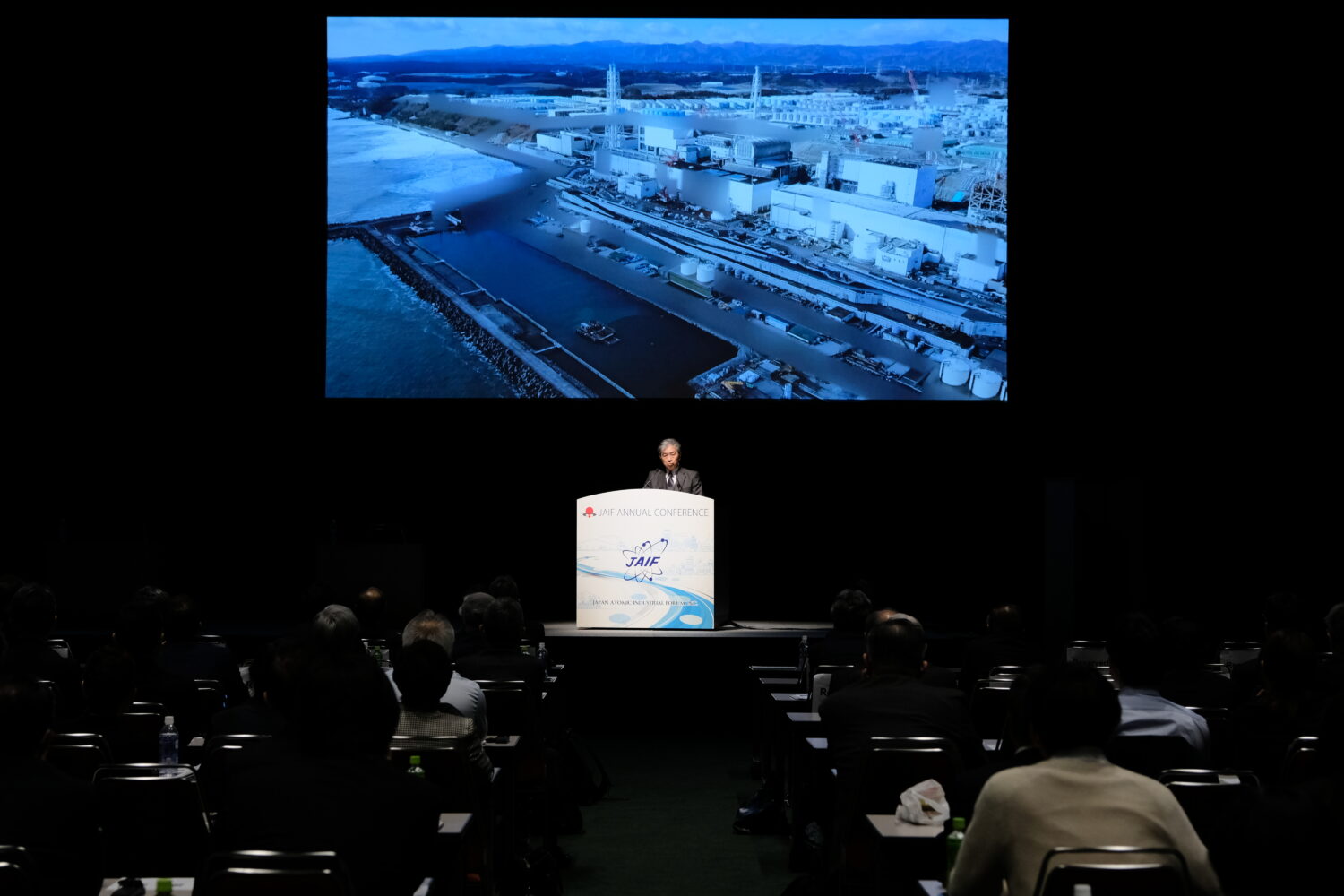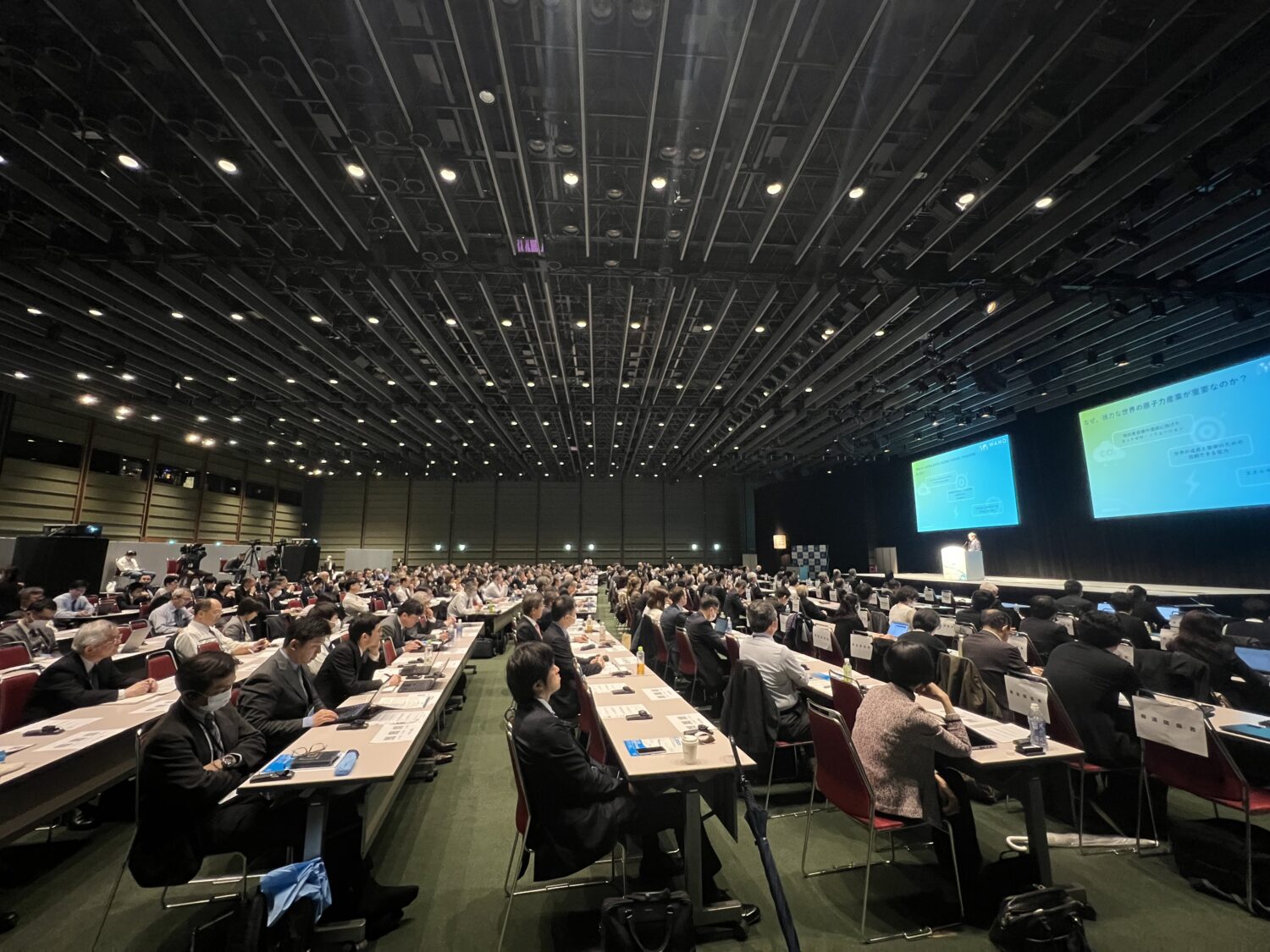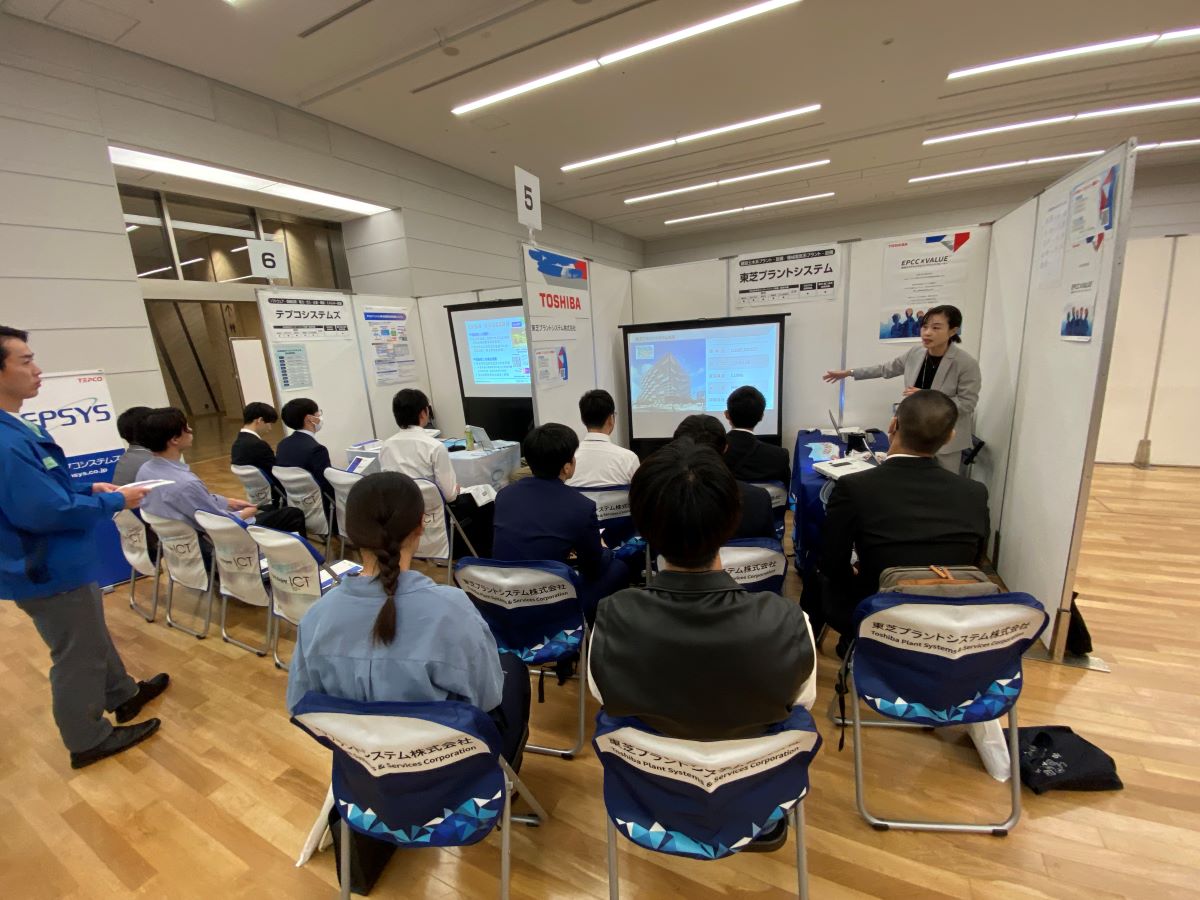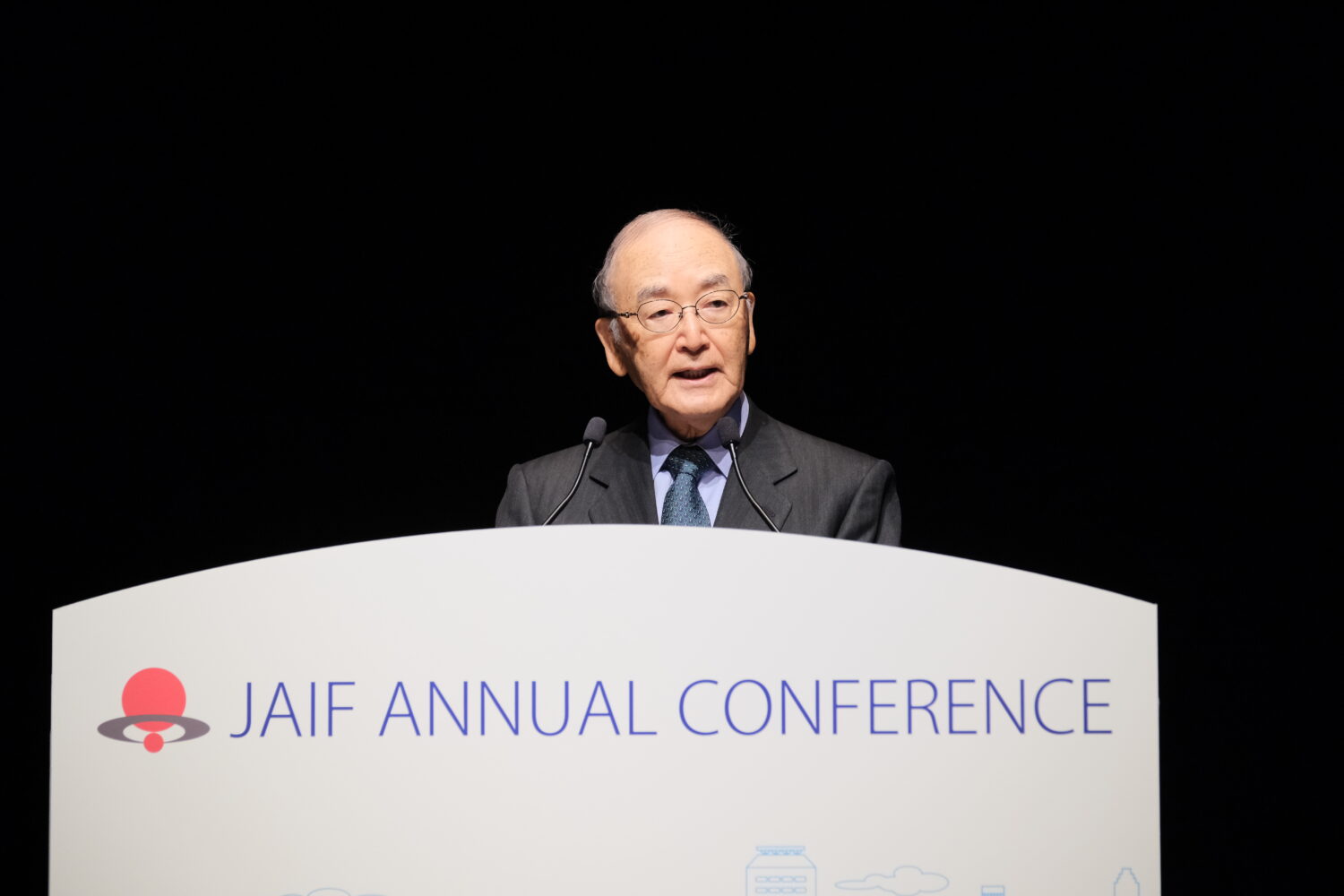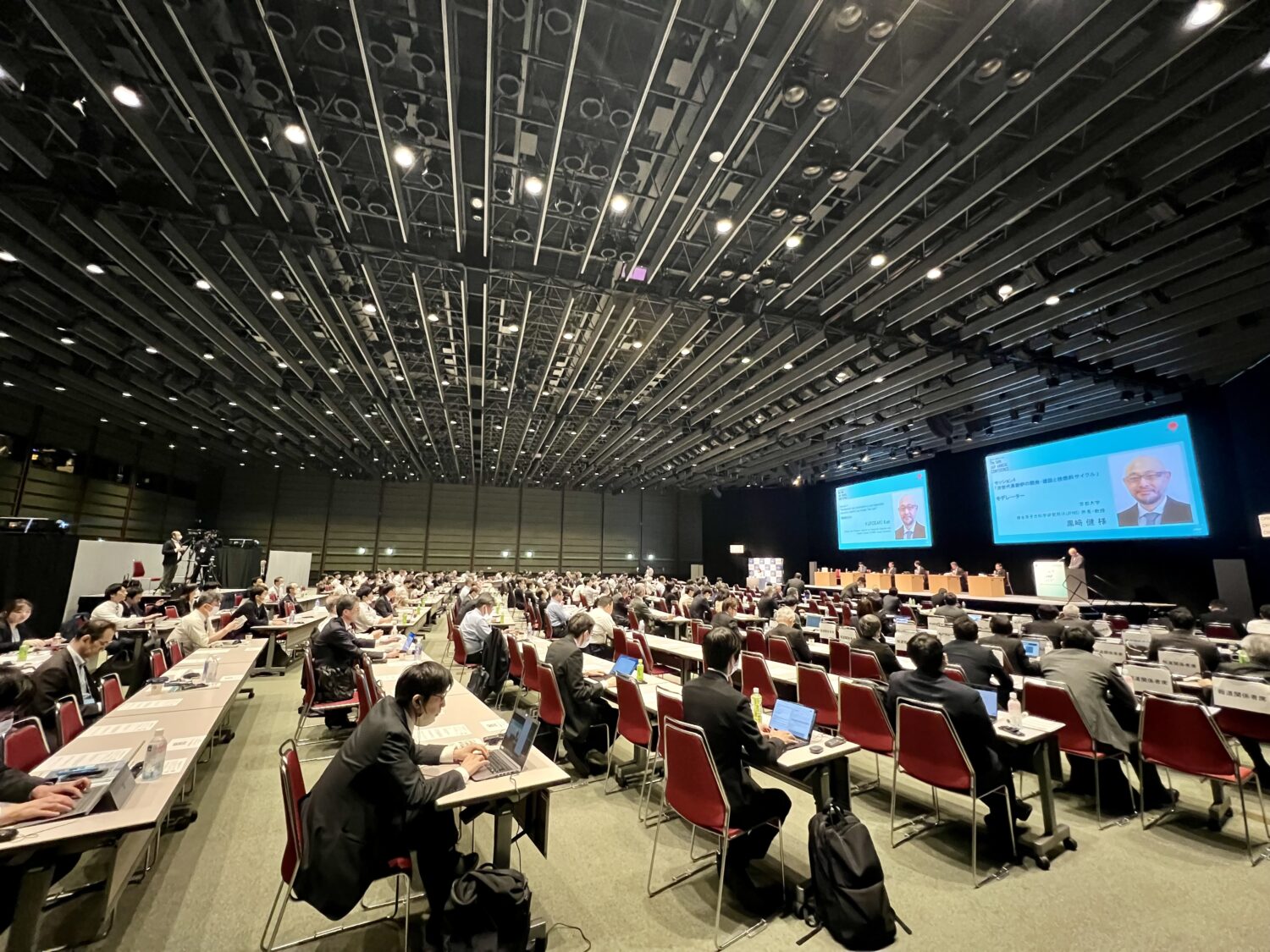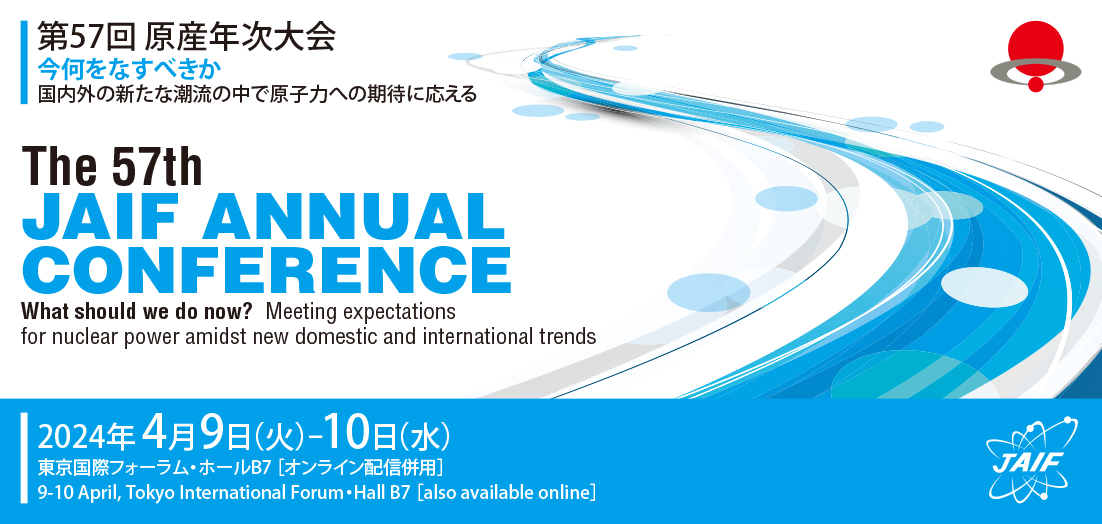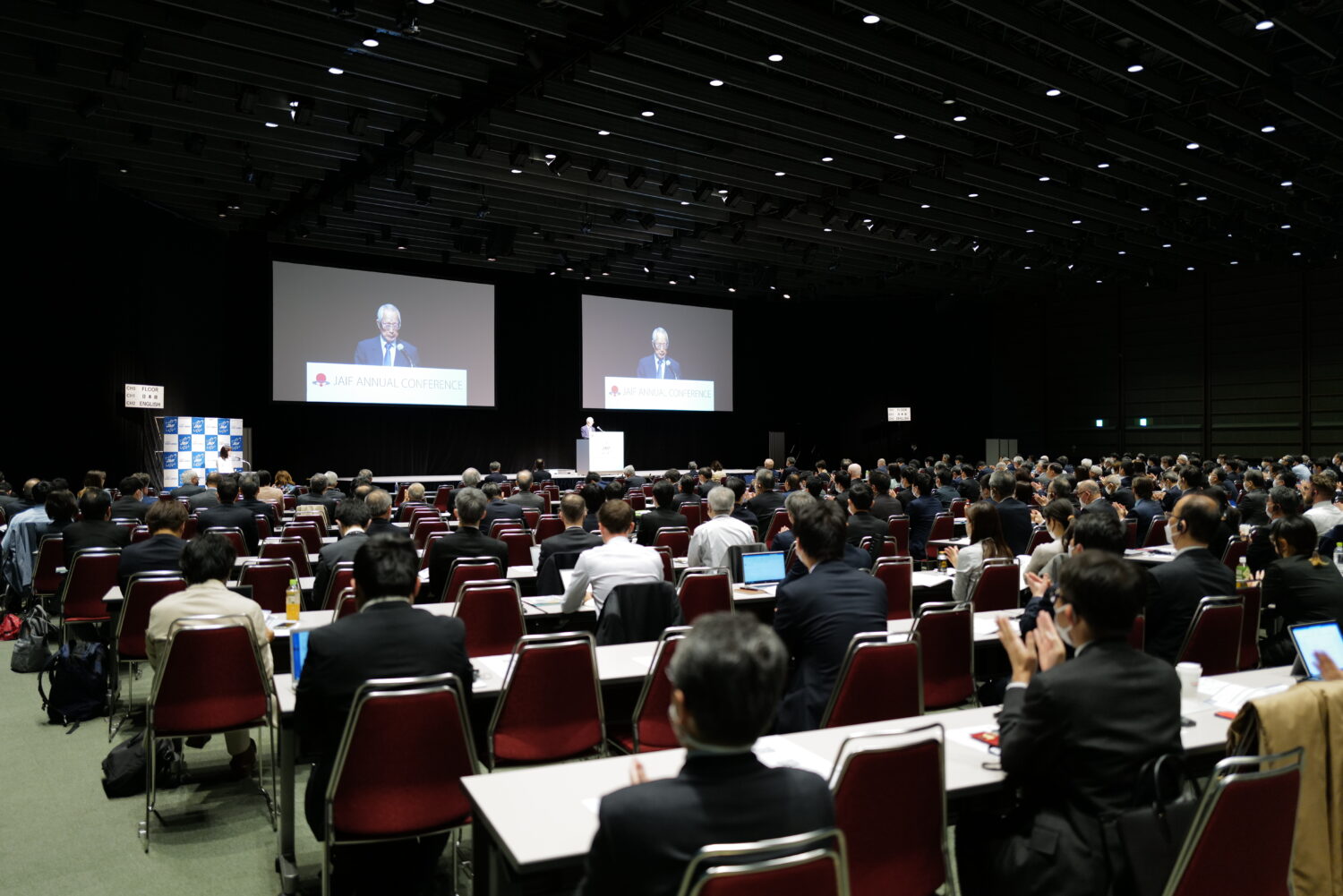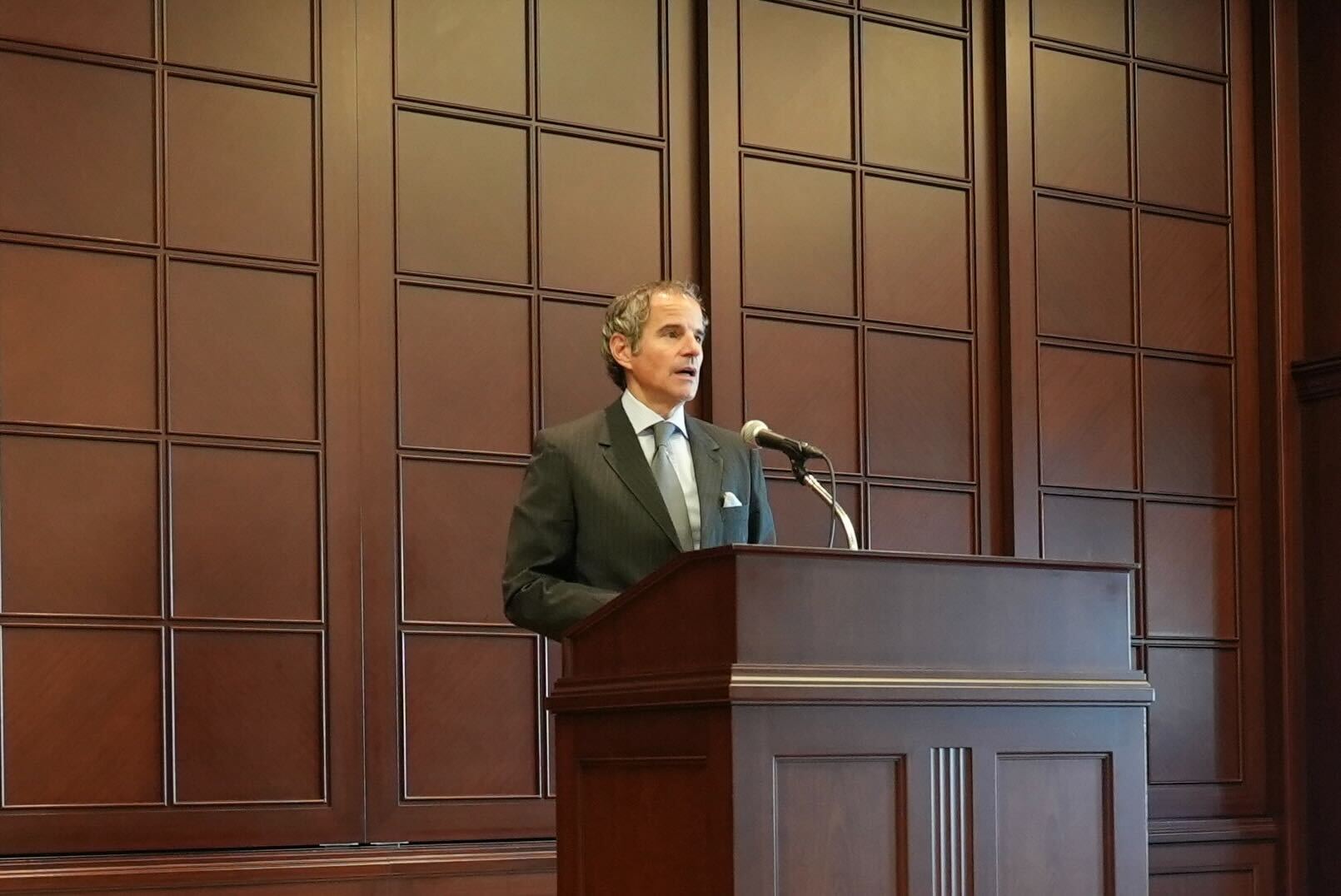At the beginning of the opening session, Chairman MIMURA Akio of the Japan Atomic Industrial Forum (JAIF) delivered the welcome address. Looking back on the year since the last annual conference, he emphasized that “momentum for nuclear power is expanding globally.” He cited several key developments overseas, including the first-ever Nuclear Energy Summit held in Brussels (March 2024) and the “Declaration to Triple Nuclear Energy” announced at COP28 (December 2023), which gained six more signatory countries by COP29 in November 2024, bringing the total to 31. He also mentioned statements of financial support by leading global financial institutions and support for the declaration by major IT companies—initiating the conference’s discussions.
Turning to recent developments in Japan, Chairman Mimura pointed to the start of operations at the Recyclable-Fuel Storage Center in November 2024—Japan’s first interim storage facility for spent fuel—describing it as “a highly meaningful measure that adds flexibility to nuclear power operations,” and highlighting the importance of back-end solutions. Regarding reactor restarts, he noted the resumption of operations at Onagawa-2 (Tohoku Electric Power Co.) in November 2024 and Shimane-2 (Chugoku Electric Power Co.) in December 2024, stating that “the number of restarted plants [in Japan] has grown to 14, and the long-awaited restart of two boiling water reactors (BWRs) represents a major step forward.”
As for energy policy, he cited the Cabinet’s approval on February 18 of Japan’s 7th Strategic Energy Plan, noting that its call for the “maximum use of nuclear energy,” replacing the previous stance of “reducing nuclear dependence,” represents a major step forward for the nuclear industry. He also emphasized the significance of the new policy’s inclusion of next-generation innovative reactors and the prospect of new construction, along with commitments to create a supportive business environment that improves predictability for funding and investment, and to strengthen supply chains and human resources.
In closing, he stated that the current conference would focus on (1) how to establish an effective business environment to enable the early realization of new nuclear projects and (2) addressing challenges through collaboration with industry players both domestically and abroad. “Under the new Strategic Energy Plan, new construction is the key to maximizing the sustainable use of nuclear energy,” he declared, setting the tone for discussions to follow.
In the guest remarks that followed, Minister of Education, Culture, Sports, Science and Technology (MEXT) ABE Toshiko and Parliamentary Vice-Minister of Economy, Trade and Industry (METI) TAKEUCHI Shinji took the stage. They each spoke on their ministries’ respective commitments, including the development of human resources (HR) and education in the nuclear field, and policies informed by the lessons of the Fukushima Daiichi accident in 2011. Takeuchi especially stressed the importance of communicating with young people, referring to his visit to the Nuclear Supply Chain Symposium co-hosted by JAIF. Noting the need to further tackle supply chain challenges, he called on the industry to give continued support.
Next, in the keynote speech, Chairman TOKURA Masakazu of the Japan Business Federation (Keidanren) delivered a presentation entitled “Energy Policy to Support Economic Growth and the Lives of People.” He discussed the adverse effects of capitalism, such as the widening, entrenchment, and reproduction of disparities, as well as the collapse of ecosystems. Citing Earth’s history and temperature changes over the past 100,000 years, he explained how humanity had prospered during the last 10,000 years, that is, during the Holocene Epoch (the current one). From that scientific perspective, he warned that “the Earth is crying out. The Green Transformation (GX) is our most urgent issue,” and shared Keidanren’s proposals and initiatives, helping to kick off further discussion.
That was followed by special presentations by Grace Stanke (Nuclear Fuels Engineer & Clean Energy Advocate at Constellation) and Archie Manoharan (Head of Nuclear Technology, Microsoft Corporation).


